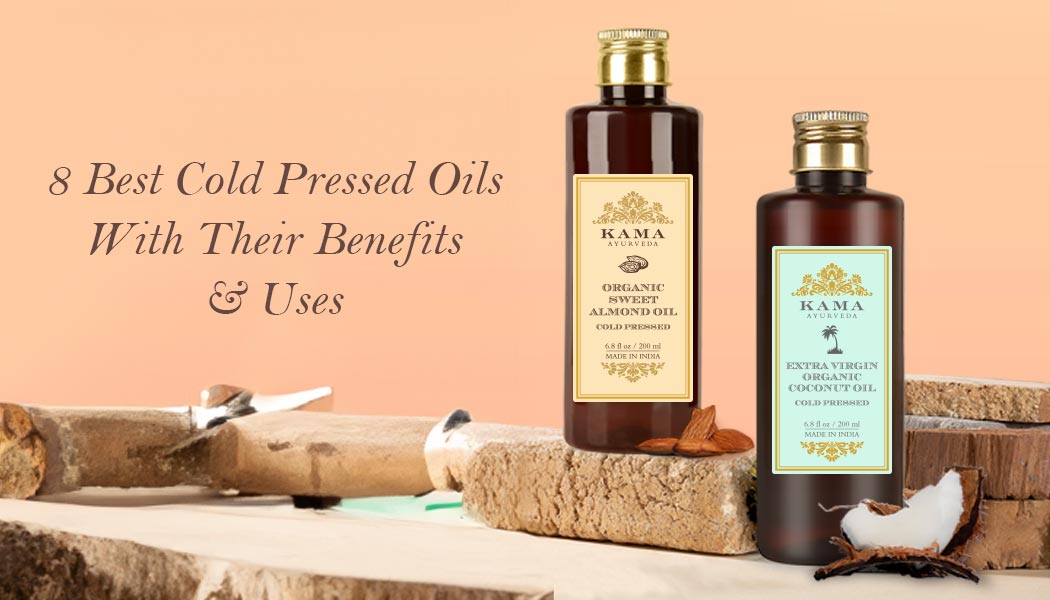Cold pressed oils, a treasure trove of nature's essence, have been quietly revolutionizing the beauty and culinary worlds.
Extracted through an ancient method that dates back to the Egyptians, these oils are more than just a natural elixir; they are a testament to the harmony between nature and health.
What sets these oils apart is not just their method of extraction, but their multifaceted benefits - from enhancing culinary delicacies with their unadulterated flavors to providing holistic skincare solutions.
What Is Cold Pressed Oil?
Unlike conventional oils extracted using high heat and chemicals, cold pressed oils are obtained by mechanically pressing seeds, nuts, or fruits, a process that ensures the retention of their full spectrum of nutrients.
This not only imbues them with superior flavors and aromas but also preserves their rich content of vitamins, minerals, and antioxidants.
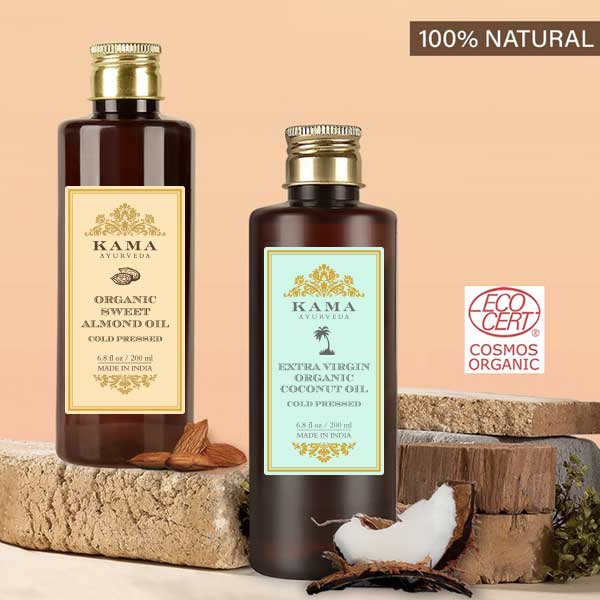
Top Benefits Of Cold Pressed Oil
In a world increasingly turning towards organic and natural choices, cold pressed oils stand out as a beacon of purity and health, offering a blend of traditional wisdom and modern wellness. Let’s explore the benefits of cold pressed oil in detail -
High in Antioxidants:
Cold pressed oils are rich in antioxidants, which play a crucial role in protecting the body from oxidative stress, a factor in aging and many chronic diseases. These antioxidants can help bolster the immune system and reduce the risk of conditions like heart disease and certain cancers.
Low in Saturated Fats:
Unlike many refined oils, cold pressed oils have a lower content of saturated fats. High intake of saturated fats is linked to increased cholesterol levels and a higher risk of heart disease. Using cold pressed oils can be a heart-healthy choice.
Rich in Polyunsaturated Fatty Acids (PUFAs):
Cold pressed oils like flaxseed, walnut, and sunflower oil are high in PUFAs, which are essential for maintaining healthy cell membranes, supporting brain function, and regulating inflammation. PUFAs also play a role in skin health, contributing to a healthy skin barrier and reducing the signs of aging.
Nutrient Preservation:
The cold pressing process avoids the use of high heat, which can destroy sensitive nutrients like Vitamin E and beta-carotene. These nutrients have potent anti-inflammatory and healing properties, beneficial for both internal health and skin care.\
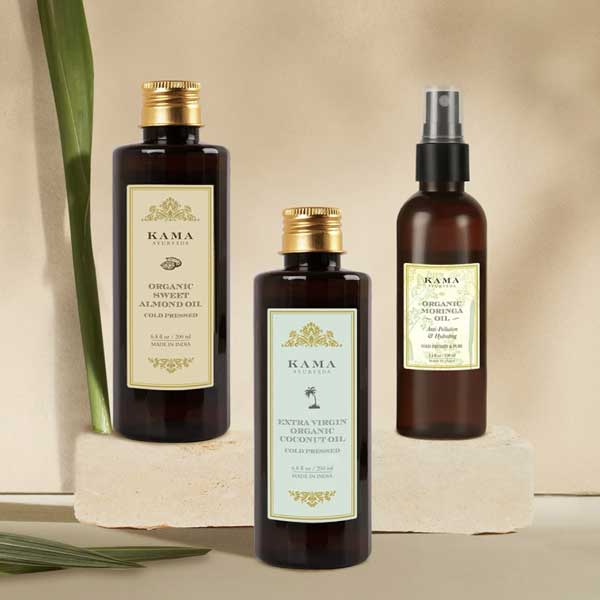
Boosting the Immune System:
Oils like cold pressed coconut oil are rich in compounds like lauric acid, which can enhance the body's immune response. This makes cold pressed oils a natural adjunct to a diet aimed at boosting immune health.
High Nutritional Value:
With their rich profile of omega-3 and omega-6 fatty acids, vitamins, and minerals, cold pressed oils offer a concentrated source of essential nutrients. These nutrients play various roles, from supporting cardiovascular health to ensuring proper brain function.
Enhanced Flavor in Cooking:
Cold pressed oils retain the natural flavors of their source seeds or nuts. This can add a nuanced, rich taste to dishes, making them a favorite among culinary enthusiasts who seek to elevate the taste profiles of their recipes.
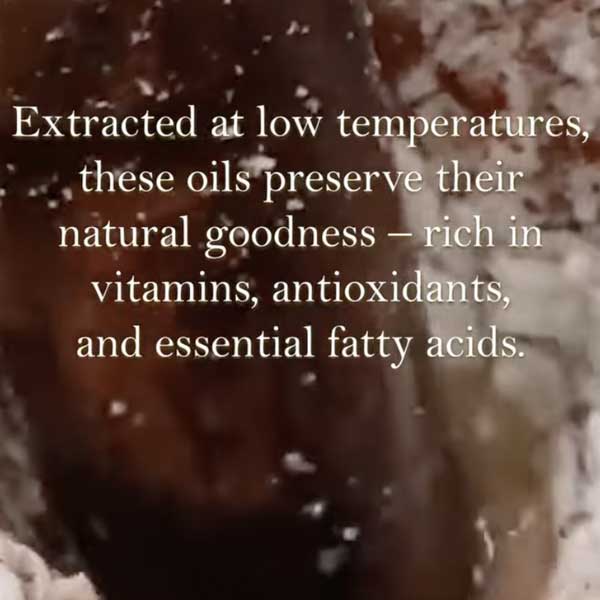
Skincare Applications:
Due to their high purity and nutrient density, cold pressed oils are increasingly used in skincare. They can hydrate and nourish the skin, aid in treating conditions like eczema and psoriasis, and even provide a natural alternative to commercial hair care products.
Natural Aroma and Flavor Preservation:
The gentle extraction process preserves the natural aroma and flavor, which is often lost in conventional oil processing. This makes cold pressed oils particularly desirable in dishes where the oil's flavor is a key component.
8 Best Cold Pressed Oils for Skin and Hair Care
Cold pressed oils are like hidden gems. Known for their purity and rich nutrient content, these oils offer a range of benefits for both skin and hair care.
From deeply moisturizing dry skin to strengthening brittle hair, each oil brings its unique properties to the table. In this section, we'll explore some of the best cold pressed oils that you can incorporate into your beauty regimen.
1. Sesame Oil: For Protecting and Nourishing Skin and Hair
Rich in antioxidants, it helps combat skin aging and promotes a healthy scalp. Sesame oil also provides natural sun protection and deep nourishment for both skin and hair.
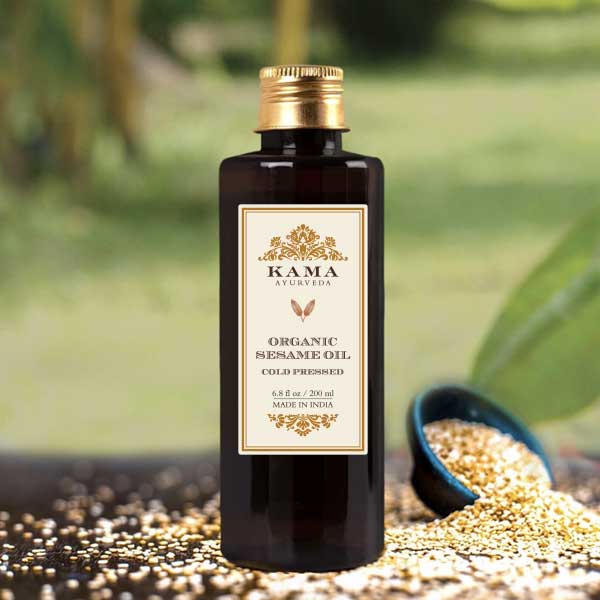
Read - How To Apply Oil To Hair? – Your Guide To Hair Oiling
2. Neem Oil: For Anti-Bacterial and Dandruff Control
Known for its potent anti-bacterial and antifungal properties, neem oil is excellent for treating scalp issues like dandruff and eczema. It's also beneficial for acne-prone skin.
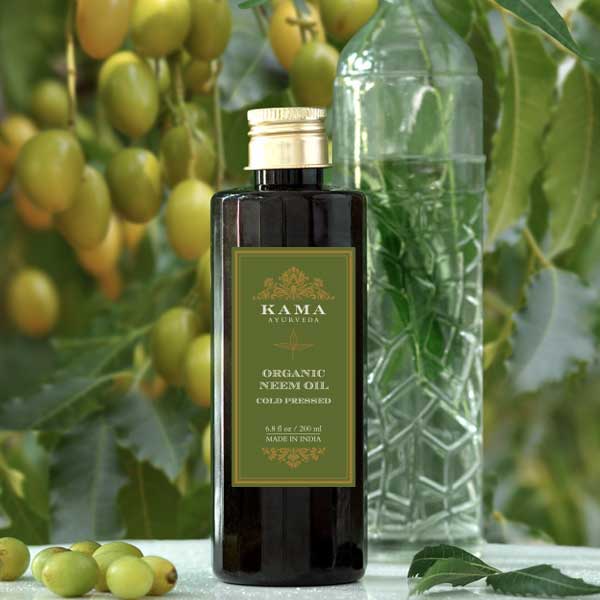
3. Argan Oil: For Moisturizing and Anti-Aging
Packed with Vitamin E and fatty acids, argan oil is a perfect moisturizer for skin and hair. It helps reduce wrinkles and fine lines and adds shine and softness to hair.
4. Jojoba Oil: For Balancing Oil Production
Its composition closely resembles human sebum, making it effective for regulating oil production in the skin. Jojoba oil is also great for hair care, promoting hair thickness and growth.
5. Coconut Oil: For Deep Conditioning Hair
Exceptional for hair conditioning, it penetrates hair shafts, promoting growth and preventing breakage. Coconut oil is also used for skin hydration and as a gentle makeup remover.
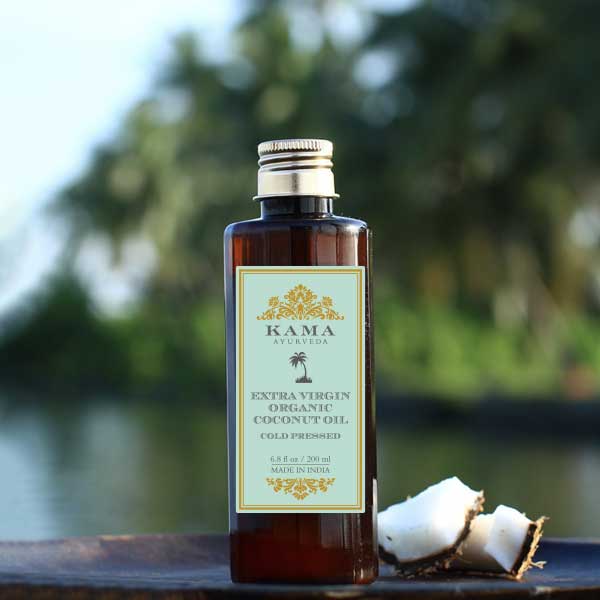
6. Rosehip Oil: For Skin Brightening and Scar Treatment
High in vitamins A and C, rosehip oil aids in skin regeneration and improves skin texture and pigmentation, making it ideal for scar reduction and skin brightening.
7. Almond Oil: For Soothing Scalp and Hair Strength
A great source of vitamins E and B, Almond oil soothes the scalp and strengthens hair. It's also excellent for skin hydration and reducing under-eye dark circles.
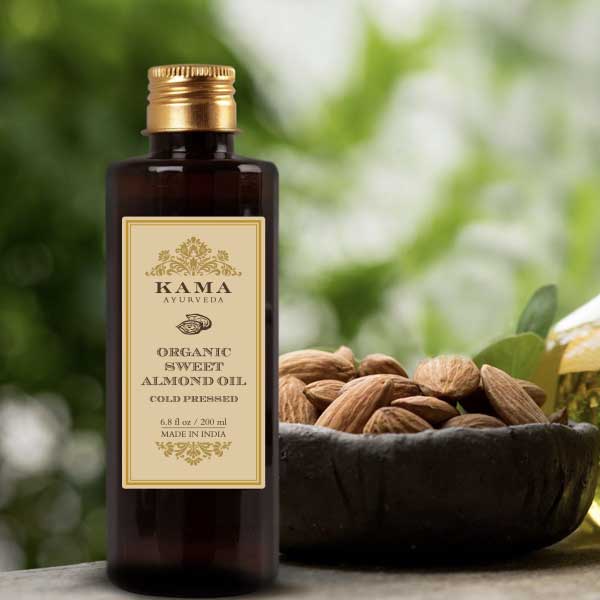
Read - Your Perfect Hair Spa At Home In 4 Simple Steps
8. Moringa Oil: For Skin Hydration and Repair
Enriched with vitamins and minerals, Moringa oil deeply hydrates the skin and helps in repairing skin damage. Its nutrients also strengthen hair and stimulate healthy hair growth.
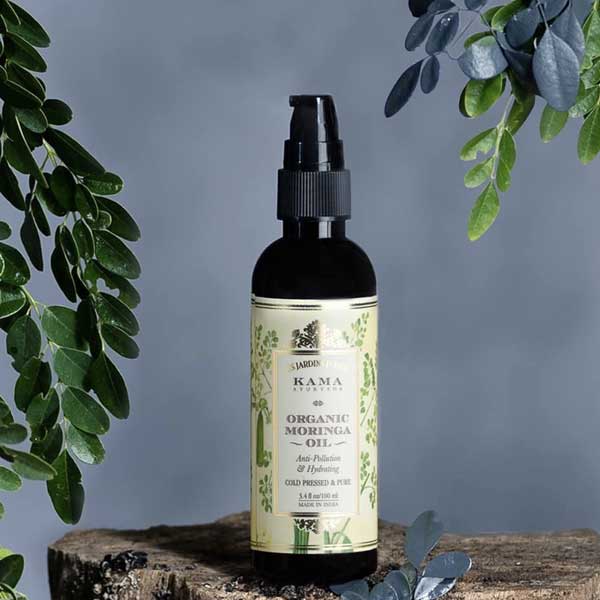
Cold-Pressed Oils Vs Regular Oils - Which Is Better?
When comparing cold pressed oils to regular (often refined) oils, there are several key differences to consider:
Extraction Process:
- Cold Pressed Oils: Extracted using a mechanical method at low temperatures. The seeds or nuts are crushed, and the oil is squeezed out without heat. This process ensures that the natural flavor, color, and nutrient content of the oil are preserved.
- Regular Oils: Typically extracted using high heat and sometimes chemical solvents. This process can strip away flavors, colors, and nutrients. It often results in a more uniform and neutral-tasting oil.
Nutritional Quality:
- Cold Pressed Oils: Higher in nutritional value as the low-temperature process preserves sensitive vitamins and antioxidants. These oils often contain more polyunsaturated and monounsaturated fats, which are beneficial for health.
- Regular Oils: The high heat and chemical processing can destroy many of the natural nutrients. They may also contain higher levels of trans fats or residues of chemical solvents.
Flavor and Aroma:
- Cold Pressed Oils: Tend to have a more distinct, robust flavor and aroma, reflecting the source seed or nut. They are often preferred for dressing, dips, and low-heat cooking.
- Regular Oils: Usually have a more neutral taste and smell, making them suitable for high-heat cooking and frying where you don't want the oil's flavor to dominate.
Price and Availability:
- Cold Pressed Oils: Generally more expensive due to the labor-intensive extraction process and lower yield. They might not be as widely available as regular oils in some areas.
- Regular Oils: More affordable and widely available. The efficiency of the extraction process keeps costs down.
Shelf Life:
- Cold Pressed Oils: Typically have a shorter shelf life than regular oils because they retain more natural compounds, which can oxidize over time.
- Regular Oils: Often have a longer shelf life due to the removal of impurities and the use of preservatives.
Health Implications:
- Cold Pressed Oils: Considered healthier due to the presence of natural antioxidants, the absence of harmful chemicals, and a better balance of healthy fats.
- Regular Oils: Some processing methods can introduce harmful compounds or reduce the health benefits of the oil.
Regular oils are more affordable and have a longer shelf life but may lack some of the natural qualities and health benefits of cold pressed versions.
